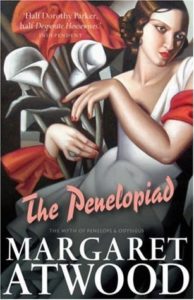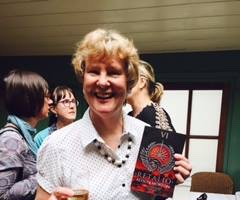 Some reflections for International Women’s Day…
Some reflections for International Women’s Day…
All fictional characters are, er, fictional. We borrow, mine, or lift characteristics from Real Life, but unless we want to get sued, the finally moulded form is a construct. We can gender mirror (I love using that expression – also made up), we can speculate, we can imagine.
Ditto the setting. Even if your thriller story is set in a gritty suburb, a private tropical island, a galaxy far, far away, or grounded by finding a parking space at Waitrose, your book world is fictional. And time… Are you in Ancient Rome, today’s London or 30,000 years in the future? It’s not real time; it’s fictional time.
Opening any book opens you to a new world and releases you from the confines of your place and time, whether as reader or writer. And this is a perfect way into speculating about the “what if”, especially for women. In Real Life, women see fewer aspirational patterns and models than men do. Perhaps this is why there are significantly more women writers and women readers than men; women are seeking an alternative..
In many works, male heroes are outspoken, forthright, taking leadership, leading the action, making decisions; women are secondary – the wife, girlfriend, assistant, the rape victim, the soft contrast to the hero. If they do take a leading role, they are uncomfortable, unhappy or unfulfilled as women or, stereotypically, the “evil one” even in childhood reading such as the Narnia series. And as for Livia as portrayed in I, Claudius – don’t get me started!
Women with power and agency, i.e. who can and do act, seem to be seen as a threat, so they are slotted in as angels or demons, nurses or harlots. What a shame.
 Enter science fiction, fantasy and its subgenres, including alternative history. SFF (for short) has long served as a platform for social criticism and commentary. George Orwell, Ursula Le Guin and Margaret Attwood are obvious examples. But it too has been crammed chock full of reduced or neglected female figures. We’ve been a long time waiting for Wonder Woman to go mainstream.
Enter science fiction, fantasy and its subgenres, including alternative history. SFF (for short) has long served as a platform for social criticism and commentary. George Orwell, Ursula Le Guin and Margaret Attwood are obvious examples. But it too has been crammed chock full of reduced or neglected female figures. We’ve been a long time waiting for Wonder Woman to go mainstream.
But an ever increasing number of authors in speculative genres are using their stories to question the central issue of gender roles. Readers travel to places far removed from their current social reality where the givens are not only questioned but tipped upside down. All constraints are down and the result may be welcome or reflect real fears. And once an idea has entered somebody’s head, it can rarely be dislodged. The synapses are firing…
Resolution, loyalty, serving the state are not exclusively male qualities. Caring, empathy, supporting are not exclusively female ones. All genders can express love, hurt, self-doubt but also happiness, acceptance and friendship. Mix all that together and bake in different tins until well done.
 My Roma Nova novels aim to do just that. It took a feminist mother, a Roman nut father, voracious reading of the weird and wonderful, six years in the military and a bad film to trigger this for me, but I remembered everything and once sparked, the Roma Nova world with its courageous and complex heroines has never left my mind.
My Roma Nova novels aim to do just that. It took a feminist mother, a Roman nut father, voracious reading of the weird and wonderful, six years in the military and a bad film to trigger this for me, but I remembered everything and once sparked, the Roma Nova world with its courageous and complex heroines has never left my mind.
Engaging with concepts, worlds and characters that seem impossible or unrealistic lets us play with a hidden, secret or yearned for adventure we couldn’t take in real life, not least due to our gender. Science fiction and fantasy novelists can show readers a radically different worldview and cultures through stories of astounding adventures in alternative realms.
And who knows? Perhaps speculative stories, with their heroic women and their derring-do have the potential to provoke change in the real world.
Update 2024: Alison Morton is the author of Roma Nova thrillers – INCEPTIO, CARINA (novella), PERFIDITAS, SUCCESSIO, AURELIA, NEXUS (novella), INSURRECTIO and RETALIO, and ROMA NOVA EXTRA, a collection of short stories. Audiobooks are available for four of the series. Double Identity, a contemporary conspiracy, starts a new series of thrillers. JULIA PRIMA, Roma Nova story set in the late 4th century, starts the Foundation stories. The sequel, EXSILIUM, is now out.
Download ‘Welcome to Alison Morton’s Thriller Worlds’, a FREE eBook, as a thank you gift when you sign up to Alison’s monthly email update. You’ll also be among the first to know about news and book progress before everybody else, and take part in giveaways.














Leave a Reply